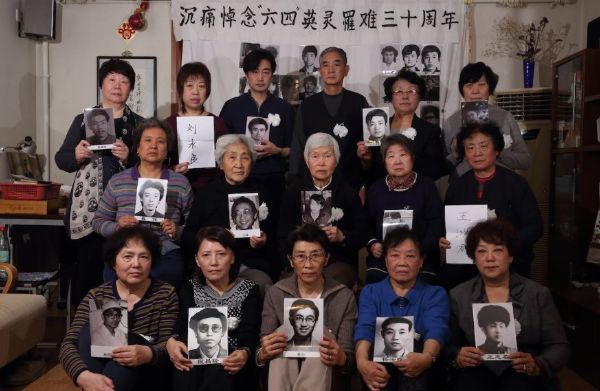The Tiananmen Mothers Never Forget
The Communist Party can’t erase their loved ones from history.

The Tiananmen Mothers call it the “June Fourth Massacre.” That’s the day, 30 years ago, when the Chinese Communist Party murdered their sons and daughters in Tiananmen Square.
The brave members of this group, 127 strong, are determined to keep their children’s memory alive—to remind their fellow citizens how the Communist Party ordered the slaughter of thousands of unarmed pro-democracy students and workers gathered in the heart of Beijing in 1989. That’s difficult and risky in a country still ruled by a party that denies the massacre ever happened, referring to it in a recent documentary as mere “turmoil.” But the relatives of the Tiananmen victims press on. They recently released a letter decrying Beijing’s “despicable and cowardly act of fabricating history.”
China’s government seems to fear these family members and tries to prevent Westerners from reaching them—sometimes taking their phones or blocking their communications—but through intermediaries our organization has heard their stories. They tell of frequent imprisonment, house arrest, monitoring by authorities, and other attempts to silence or control them. The crackdown appears to have worsened as the anniversary approaches. Ding Zilin, the group’s 82-year-old founder, usually has guards from State Security posted outside her home this time of year, watching her and stopping visitors from speaking with her.
On June 4, we will present the Tiananmen Mothers with our Truman-Reagan Medal of Freedom in recognition of their steadfast courage. In their March letter, the mothers lamented that “time is merciless, and the natural laws of life, aging, sickness, and death spare no one.” Fifty-five family members of victims that joined their struggle have already died. While they are confident that others will continue their work, the mothers have also told us that the West has done too little to hold the Communist Party accountable for its actions in 1989.
We hear similar concern from other victims. The people of Hong Kong are watching Beijing slowly whittle away their civil liberties, as Tibetans see the Party doing the same to their culture. Meanwhile, up to three million Muslim Uighurs in Xinjiang province have been imprisoned in concentration camps, according to one Department of Defense official. Like the Tiananmen Mothers, they sometimes hear the U.S. and our allies condemn Beijing’s abuses, but see little action.
In the struggle between communism and freedom, the West has no more powerful weapon than human rights. The Trump administration can start by applying sanctions to the many known human-rights abusers in China. The Global Magnitsky Act of 2016 provides wide latitude to accomplish this goal, yet no Chinese officials or entities have yet been listed. The U.S. should target the surviving top perpetrators of the June 4 massacre as well as those behind China’s current atrocities. Congress can also swiftly pass the Uyghur Human Rights Policy Act.
Like the Tiananmen mothers, those who cherish freedom must work to dispel Beijing’s lies. But we also must make it clear with actions, not just words, that we will never forget what happened—not least because it happens still.
Mr. Smith is executive director of the Victims of Communism Memorial Foundation.

